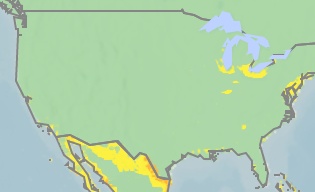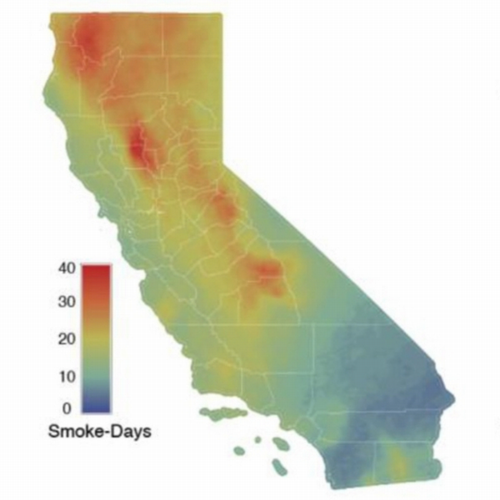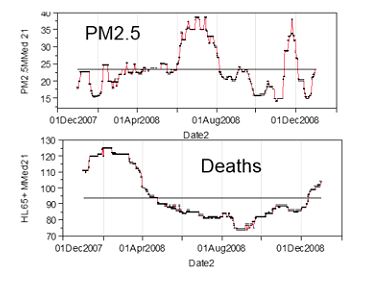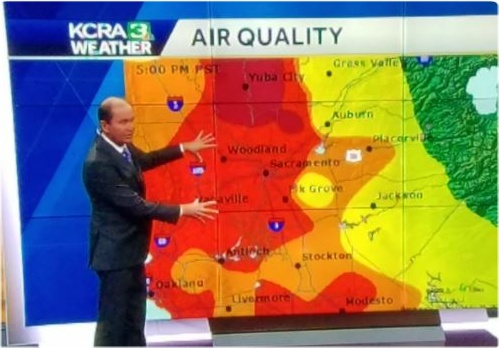It can all be pretty depressing. If that isn't enough, epidemiologists are now telling them if they are not rich, and live in an area where air quality is less clean than remote Siberia, the air they breathe may cause postpartum depression also.
Like with all those others claims about infant formula and a glass of chardonnay, new mothers can relax, because none of those claims are science, they are only epidemiology.(1) Epidemiology is only looking at columns of people who say they do or eat in the X columns and then looking at diseases or benefits in the Y rows and publishing a paper "correlating" and declaring "risk" if they can declare statistical significance.(2) That means it is not science, it is exploratory. If something looks compelling, chemists, biologists, and toxicologists will look into it but the Biden administration is the first to throw out scientists and claim epidemiologists need no validation. Hopefully, whoever wins will undo the mess that has caused, starting with EPA.
You can relax about your air quality making you depressed, for two reasons.
The first reason is we actually have some of the cleanest air in the world. Air became so clean in the 1990s that pollution epidemiologists were about to be out of jobs, so they changed clean air from PM10 levels - actual pollution, like smog - to PM2.5. Suddenly, air quality maps could be red again, just by changing the scale to being 400% wider.

Actual pollution in the US.
But if you define pollution down far enough, in this case by declaring pollution is 400% more common despite no scientific evidence for it, you can scare people with this:

It's the same air, the top is just actual pollution we know can kill, like the London Fog event of the 1950s. That was PM10. No study has ever shown PM2.5 to kill anyone. Impartial studies instead show no relation to deaths at all.

The fact that you need an electron microscope to see small micron particulate matter didn't matter to corporate media, television weatherpeople don't know any better and they got to have another chart to show us, this time how bad the air was.

If I am ever President of the United States I will cure poverty by using air epidemiology tactics - I will just lower the poverty level to 25% of what it is now and no one will be poor. If you disagree, you must be a shill for Big Poverty.
The second reason not to worry is that this is just correlation and there are so many confounders that despite claiming they "control" for a few, these are still just people claiming they recalled being depressed and then had an air quality map laid over their address. "Emerging area of research" is code language for 'we have no way to show any of our beliefs are real,' especially when it is only 361 people who are not wealthy in one small, very expensive location.
That sounds a little harsh but I actually want to applaud these scholars for at least making an honest effort when most air quality academics and activists don't - they actually included PM10 and NO2 rather than taking the lazy route and just using PM2.5 and Ozone. Despite PM2.5 being 400% greater using simple math, it was not linked to greater depression. Nor should it be, because virtual pollution shouldn't be suggested to be causal in anything except grant proposals at NIH, where the Biden administration also funds studies of acupuncture and music therapy.
Yet those and other strange finders are confounders so large it's hard to take the paper seriously. Ozone was the source of a lot of hype since the 1980s, and a whole lot of mitigation and higher costs for products did nothing to change it. It only added to the stress of poor people. And poor people who have children are under a lot more stress than celebrities with a phalanx of nannies. So a study that looked primarily at Latinos in Los Angeles is...strange. Los Angeles is a geographical basin of pollution. It is the one area of California that had pollution go up when no one was allowed to go into California offices during the COVID-19 pandemic, and that was all due to nature. Everything causes ozone to spike. Urban trees cause more ozone. Electric cars cause more ozone. Yet ozone doesn't lead to more depression in the one place we know it will always be high?
California government has made the cost of living much higher during the time of the longitudinal study. During Governor Newsom's time in office, his government panel raised electricity costs nearly 100%. Poor Latinos are not the ones getting subsidies for solar panels on homes, nor are they 'selling energy back at the cost they buy it' under the state's net metering boondoggle. They are the ones the government stuck with 100% higher electricity costs. Add an infant a mother who perhaps can't work and of course that means mental health issues.
Yet income alone also can't correlate to higher postpartum depression. In Los Angeles, where this study was done, rich, white women claim unreal levels of postpartum depression. And lots of doctors give them a prescription so they feel validated. It shows why Los Angeles is a terrible place to try and do any science, even if it's easy because it's in your backyard.
NOTES:
(1) The American belief that a glass of wine is certain to cause a birth defect was created in the heyday of American corporate media dominance - the 1970s. They'd tell you butter caused heart attacks and trans fats prevented them and you had to believe them because they told you they are unbiased and did everything based on evidence. Now people know better. The kernel of scientific truth was that women in a small study did have more children with fetal alcohol syndrome, but they were raging binge drinkers.
In the 17th century, the most illiterate peasant could grasp that 'the dose makes the poison but in the late 20th century that got lost, and today anti-science activists and the lawyers in their tribe believe any dose is a poison.
(2) The last time epidemiology was able to find an actual carcinogen was the 1980s. Everything since then has been an ongoing job works program propped up by government funding and trial lawyers. If you are part of the $135 billion organic food industry, you will certainly promote bizarre claims that a weedkiller can cause human cancer (maybe plants are little green people!) but every judge with any science acumen throws those claims out in court.




Comments